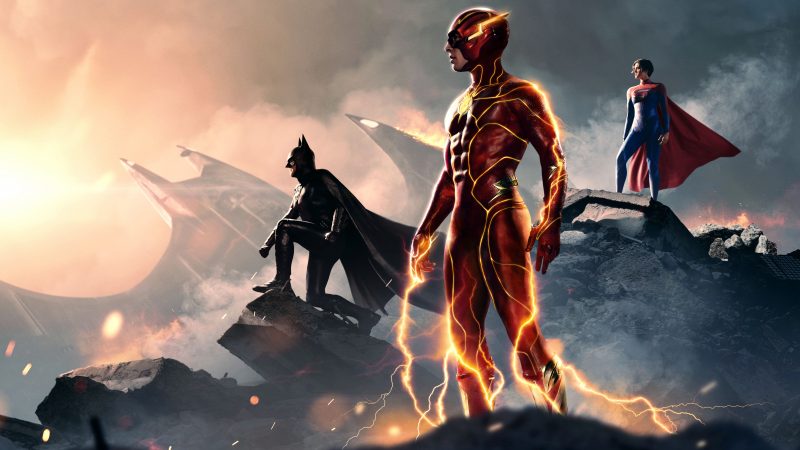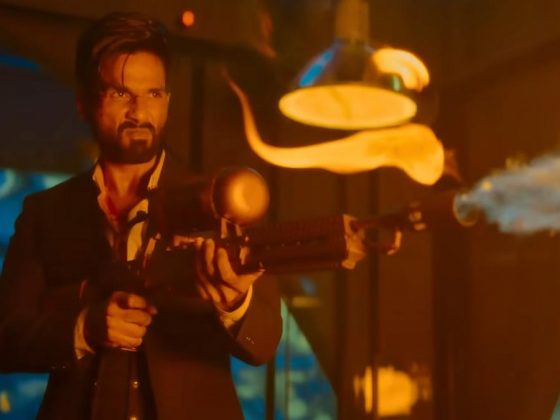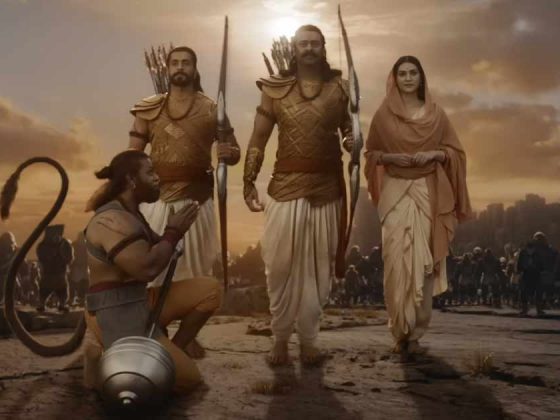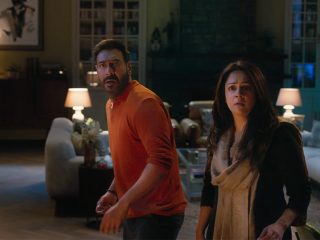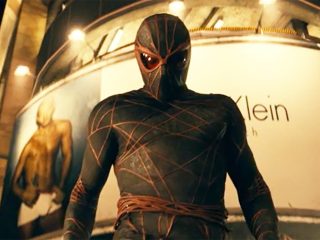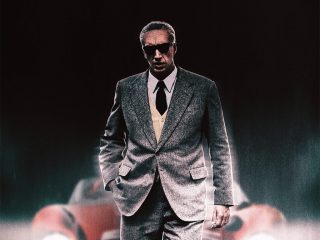Perhaps because of the most well-known source material it is unfortunately saddled with, The Flash became the linchpin of a DC cinematic universe that, while unique and different, could also be categorised as misguided and utterly mismanaged. This importance has been given to this movie, which consequently chooses to adapt a storyline that wasn’t supposed to be a linchpin to a reboot in the first place but ultimately becomes one.
The Flash is thus the most Geoff Johns-ian movie ever made, and honestly, I can’t categorise that as a good thing.
What The Flash does right is remind us that it is a Flash movie first and foremost. The “coming-of-age” that Barry Allen (and both of them) undergo is quietly effective. However, the underlying implications do signify that the Barry Allen prone to belief and change and destroying all “intersecting” points because his abilities shouldn’t be constrained by plot contrivances is the one who fails, while the Barry Allen who succeeds is the one who finally tried to maintain the status quo with minimal butterfly effects. Almost as if conformism saves the day instead of individualism, this is the starkly opposite message of Spider-Man: Across the Spider-Verse, the other movie about the multiverse that came out a few weeks ago.
The significant amount of delays to establish a status quo and coherent universe actually ends up hurting “The Flash,” leading it to come out at a time when the multiverse is at risk of becoming a stake-less plot contrivance and only works with insanely effective storytelling. “The Flash” takes the expected route and goes completely conventional, following all the superhero tropes and trying to maintain a heart without taking risks. As a result, the movie is fun at places, but it never rises beyond what it initially promised—a retconning exercise. One of the bigger criticisms that should be attributed is the screenplay, which has pacing issues compounded by the liberal amount of slow motion. It is perhaps not surprising that the movie finally becomes more engaging when Batman (Michael Keaton) and Supergirl (Sasha Calle) appear. Muschietti’s handling of both of these characters is surprisingly effective.
With Keaton’s Batman, he both shows the idiosyncrasy and effectiveness of that character and yet also shows how much he is a man completely out of his own time and depth. With Supergirl effectively working as a clean, user-modified redux of Man of Steel, Muschietti emphasises how the brutality of that movie and the success of Superman’s methods weren’t flukes but inevitabilities. Calle too has surprisingly less screen time as Supergirl, but she has fantastic screen presence and vulnerability to portray, inciting interest in a version of this Supergirl’s story moving forward.
At the end of the day, however, “The Flash” fails because of what it entails. The enormity of the powers of the character ensured that the CG used in this film would be massive. The inconsistency of that CG derails this movie, especially in the final fight scenes, where you are reminded of the rubbery nature of the computer-generated characters in the fight scenes of Black Panther.
The final antagonist comes too late in the picture, which makes the proceedings feel very rushed. It was a good choice to change the initial butterfly effect to something mildly inconsequential rather than Reverse Flash, which is the living paradox in the source material. However, the final moment and the resolution only work because of Miller as Barry Allen. He is genuinely very good in the movie, and he effectively manages to differentiate the two Barry Allens, even though he threatens to make one of them more obnoxious than necessary, leading to some of the film’s humour just falling flat.
The cameos are just that—cameos—garnishes on an overstuffed-looking but undercooked cake. The facial technology utilised for some of the notable ones doesn’t work, heightening the uncanny valley of the characters. It is also sad that this is the last time we will be witness to Affleck’s version of Batman, because under Muschietti’s hands, this Batman has evolved from the Frank Miller bruiser and darker Batman to the Neal Adams era, emotionally stable Batman, and that is not a version we are used to seeing. Affleck, too, in his limited role, leaves an impression.
“The Flash” is not the greatest DC superhero movie ever made. It is not a train wreck either. The CGI truly needed work, but considering all the behind-the-scenes drama, it’s a miracle this movie came out even remotely coherent, much less engaging, despite the sloppy editing and pacing issues. As a goodbye to this iteration of the DC universe, it is a bittersweet one, because that first half truly showed a version of the DC universe akin to “The Brave and the Bold,” and honestly, I would have liked to see that. However, it doesn’t explain anything about the state of the universe moving forward, so as the linchpin of the DC universe, it wasn’t very successful either. Fascinating.

